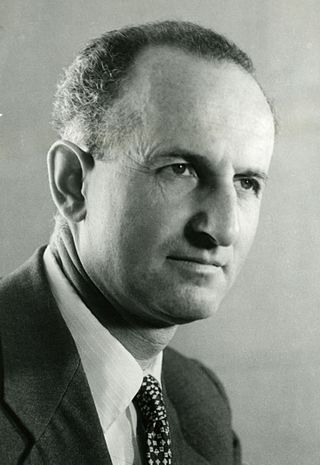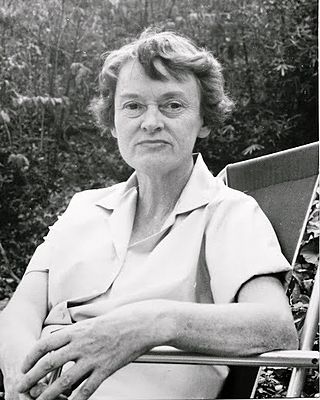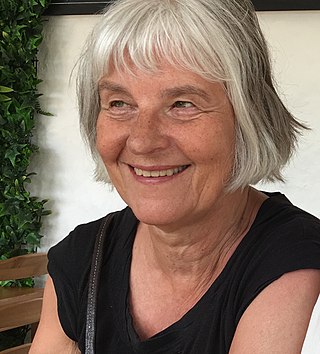
Gotthilf Hempel is a German marine biologist and oceanographer.
Sir Roy Malcolm Anderson is a leading international authority on the epidemiology and control of infectious diseases. He is the author, with Robert May, of the most highly cited book in this field, entitled Infectious Diseases of Humans: Dynamics and Control. His early work was on the population ecology of infectious agents before focusing on the epidemiology and control of human infections. His published research includes studies of the major viral, bacterial and parasitic infections of humans, wildlife and livestock. This has included major studies on HIV, SARS, foot and mouth disease, bovine tuberculosis, bovine spongiform encephalopathy (BSE), influenza A, antibiotic resistant bacteria, the neglected tropical diseases and most recently COVID-19. Anderson is the author of over 650 peer-reviewed scientific articles with an h-index of 125.

Charles Otis Whitman was an American zoologist, who was influential to the founding of classical ethology. A dedicated educator who preferred to teach a few research students at a time, he made major contributions in the areas of evolution and embryology of worms, comparative anatomy, heredity, and animal behaviour. He was known as the "Father of Zoology" in Japan.
Mary Jane West-Eberhard is an American theoretical biologist noted for arguing that phenotypic and developmental plasticity played a key role in shaping animal evolution and speciation. She is also an entomologist notable for her work on the behavior and evolution of social wasps.

Irenäus Eibl-Eibesfeldt was an Austrian ethologist in the field of human ethology. In authoring the book which bears that title, he applied ethology to humans by studying them in a perspective more common to volumes studying animal behavior.

Heinz Steinitz was a senior Israeli marine biologist and herpetologist, Professor and Chairman of the Department of zoology at the Hebrew University in Jerusalem. He laid the foundation for research and teaching in marine biology and oceanography in Israel. In 1968 he founded the Marine Biology Laboratory of the Hebrew University near Eilat, serving as its first director. He also served as a founding member of the Zoological Society of Israel and a co-founder of the Society for the Protection of Nature in Israel.
Bruce A. Menge is an American ocean ecologist. He has spent over forty years studying the processes that drive the dynamics of natural communities. His fields of interest include: structure and dynamics of marine meta-ecosystems, responses of coastal ecosystems to climate change, linking benthic and inner shelf pelagic communities, the relationship between scale and ecosystem dynamics, bottom-up and top-down control of community structure, recruitment dynamics, ecophysiology and sub-organismal mechanisms in environmental stress models, larval transport and connectivity, impact of ocean acidification on marine ecosystems, controls of productivity, population, community, and geographical ecology. He settled on two career goals: carrying out experiment-based field research to investigate the dynamics of rocky intertidal communities, focusing on species interactions and environmental context and how this might shape a community, and using the resulting data to test and modify theories on how communities were organized.
Les Kaufman is an evolutionary ecologist specializing in the biology and conservation of aquatic ecosystems. He has special expertise in coral reef biology, the evolution and ecology of tropical great lakes fishes, and ecosystem-based management of marine resources.

Ira Rubinoff is an American marine biologist and was a former director of the Smithsonian Tropical Research Institute in Panama.

Bernd Gerhard Würsig is an educator and researcher who works mainly on aspects of behavior and behavioral ecology of whales and dolphins. Much of his early work was done in close collaboration with his wife Melany Ann Würsig, and they have published numerous manuscripts and books together. He is now Professor Emeritus at Texas A&M University, teaching only occasionally but still involved with graduate student and other research. He is especially active with problems and potential solutions concerning Indo-Pacific humpback dolphins, Sousa chinensis, in and surrounding waters of Hong Kong.

Francesca Gherardi was an Italian zoologist, ethologist, and ecologist. Most of her work was performed at the Department of Biology of the University of Florence, Italy, where she was a researcher and an associate professor.

Jocelyn Crane, aka Jocelyn Crane-Griffin, was an American carcinologist, most famous for her research on the fiddler crab and her work with the New York Zoological Society's Department of Tropical Research.
Vladimir Sokolov was a Russian scientist in the field of zoology and ecology. He was a member of the USSR Academy of Sciences, Russian Academy of Science and the Brundtland Commission. He was one of the pioneers of the Russian environmentalism movement and one of the early global sustainability advocates.
Narayana Balakrishnan Nair (1927–2010) was a marine biologist, ecologist and the founder president of Kerala Science Congress. He was known for his advocacy of trawling ban during monsoon seasons which was later accepted and imposed by the Government of Kerala. A Jawaharlal Nehru fellow, Nair was an elected fellow of all the major Indian science academies as well as the Zoological Society of London. The Council of Scientific and Industrial Research, the apex agency of the Government of India for scientific research, awarded him the Shanti Swarup Bhatnagar Prize for Science and Technology, one of the highest Indian science awards, in 1971, for his contributions to biological sciences. He received the fourth highest Indian civilian honor of the Padma Shri in 1984.
Professor Helene Denise Marsh is an Australian scientist who has provided research in the field of Environmental Science, more specifically Zoology and Ecology. The focal point of her research has been the biology of dugongs, with particular foci in the areas of population ecology, history, reproduction, diet, and movements. She is the Dean of Graduate Research Studies and the Professor of Environmental Science at James Cook University in Queensland, Australia, and also a Distinguished Professor in the College of Marine and Environmental Science. Marsh is also a program leader for the Marine and Tropical Research Science Facility. In 2015 she was elected a Fellow of both the Australian Academy of Science (FAA), and the Australian Academy of Technological Sciences and Engineering (FTSE). She was appointed Officer of the Order of Australia (AO) in the 2021 Australia Day Honours.
Leo Pardi (1915–1990) was an Italian zoologist and ethologist, the initiator of modern ethological research in Italy.

Ethology Ecology & Evolution is a bimonthly peer-reviewed scientific journal covering all aspects of the ecology, evolution or genetics of behaviour. It was established in 1890 as Monitore Zoologico Italiano, obtaining its current name in 1989, with volume numbering restarted at 1. It is published by Taylor & Francis and the editor-in-chief is Alberto Ugolini.
Carole C. Baldwin is a research zoologist, curator of fishes, and the vertebrate zoology department chair at the National Museum of Natural History. She researches the diversity and evolution of coral reef and deep sea fishes through integrative taxonomy. She is on the board of directors of the National Aquarium in Washington, D.C. She is a senior author on the educational seafood cookbook One Fish, Two Fish, Crawfish, Bluefish - The Smithsonian Sustainable Seafood Cookbook, and the principal investigator on the Deep Reef Observation Project (DROP) which researches reefs to 300 meter depths. She was inducted into the Women Divers Hall of Fame in 2003.
Deborah A. Clark is a Research and adjunct professor of Tropical Ecology at the University of Missouri-St. Louis. For over 40 years she has worked with her partner David B. Clark on the zoology, botany, geosciences, ecology, and climatology of the rain forests in Costa Rica.

Hrefna Sigurjónsdóttir is a biologist and a professor at the University of Iceland.








